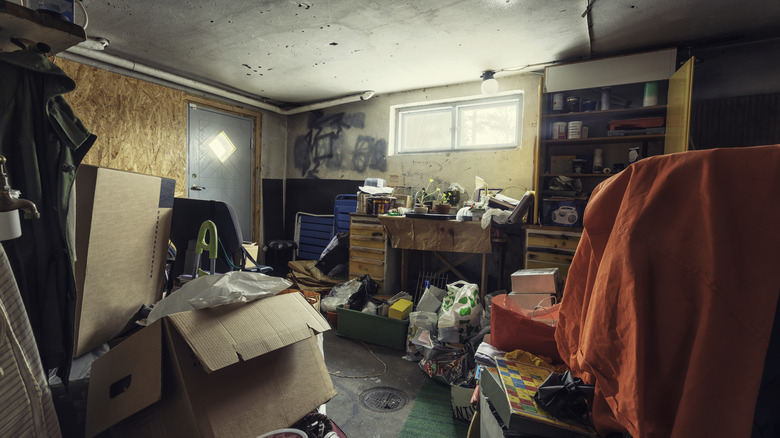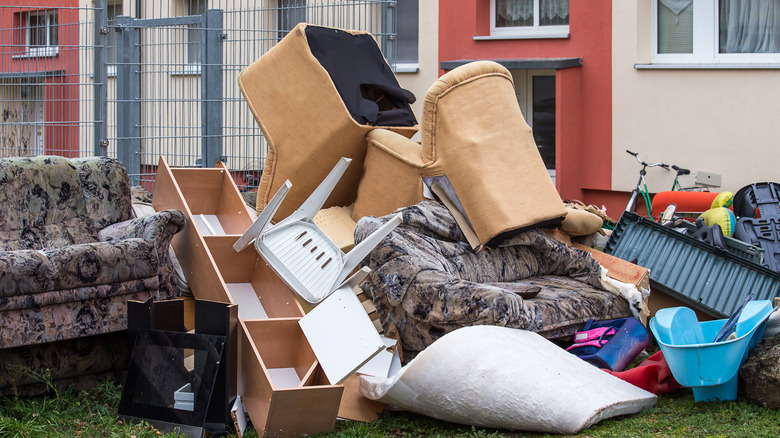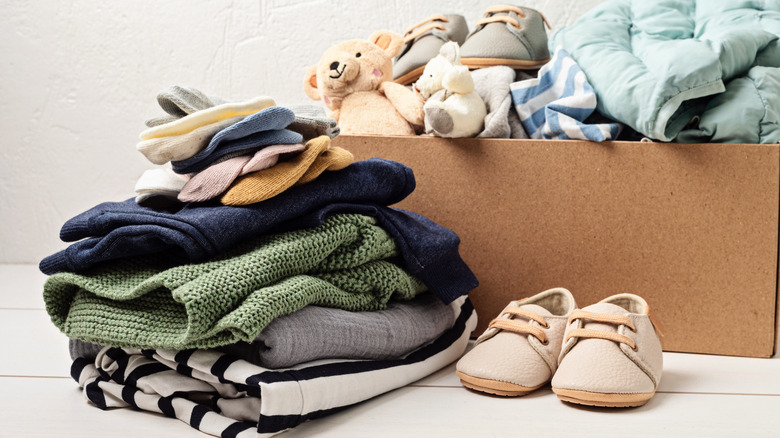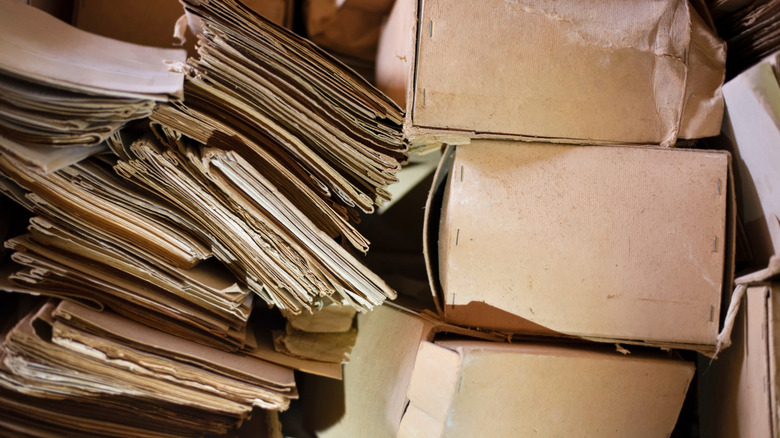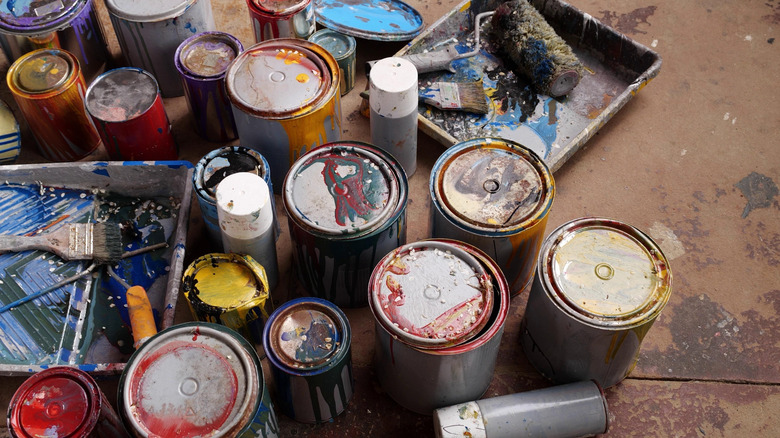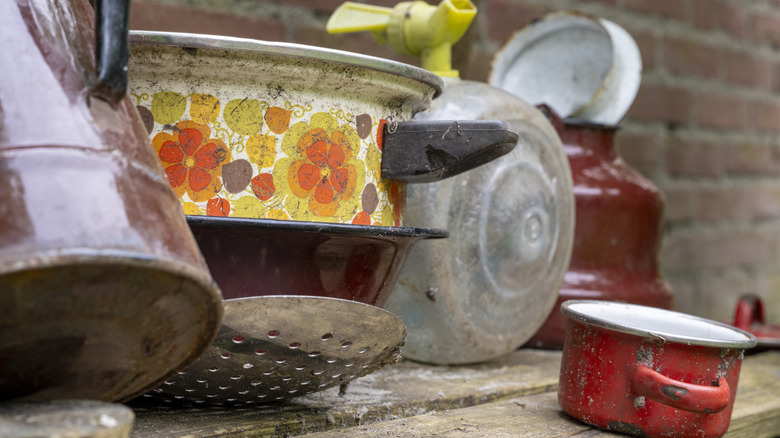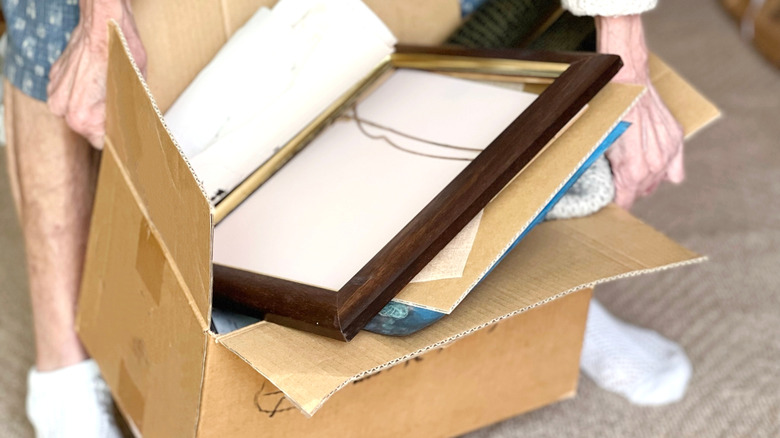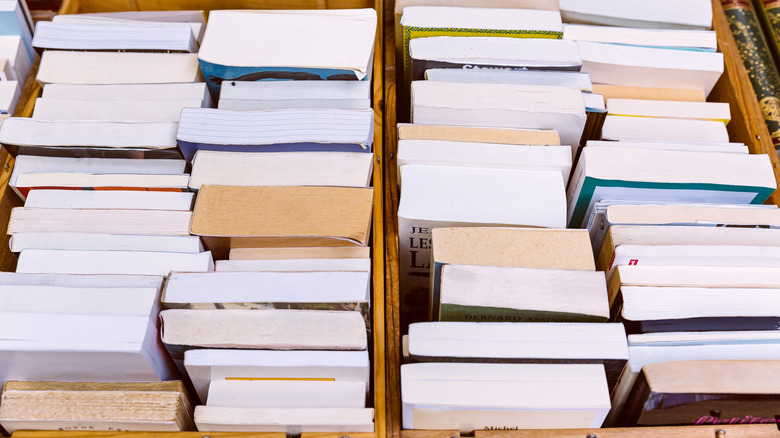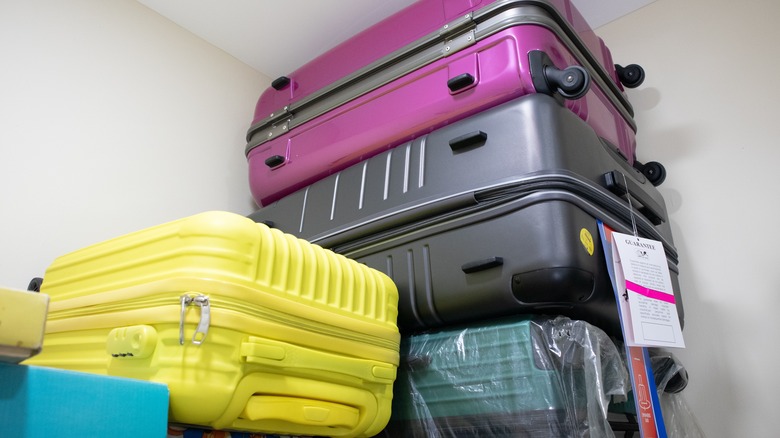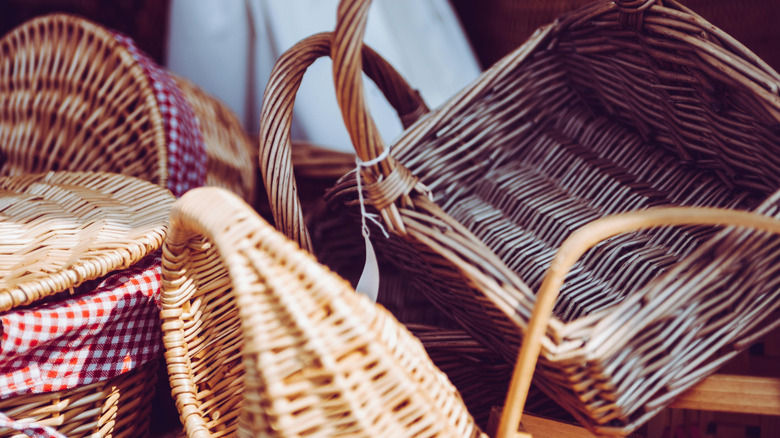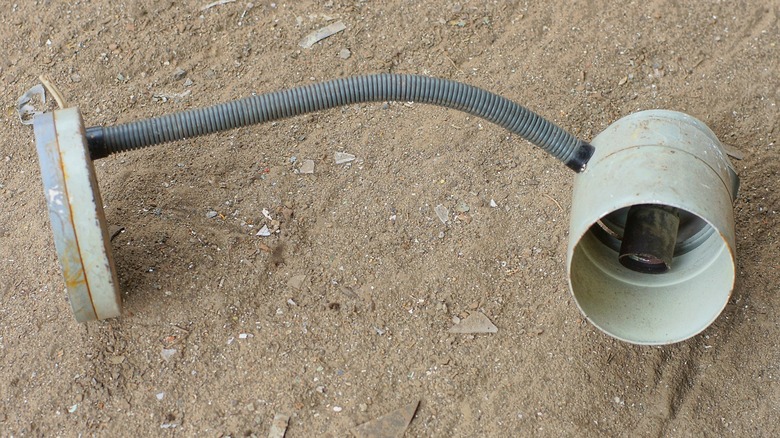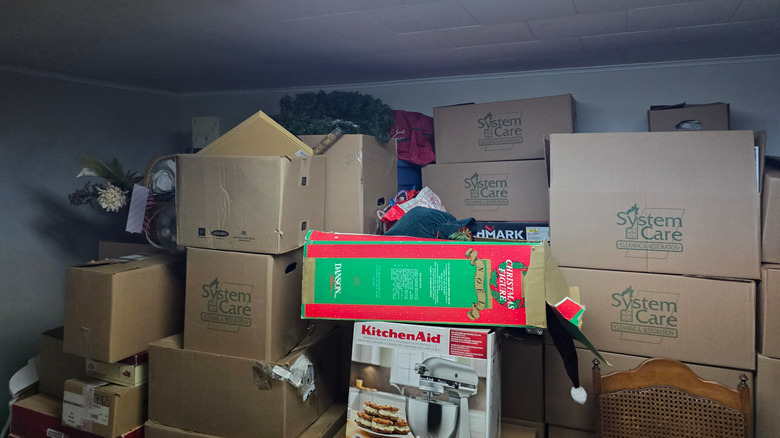Declutter Your Basement By Tossing These 12 Commonly Stored Items
The beauty of having a basement is all the extra storage space. No need to worry about squeezing seasonal decor in a small apartment coat closet or trying to utilize every inch of cabinet storage space with hacks, but sometimes having that space is also our hoarding downfall. Much like how other utilitarian spaces in our homes, like garages, become dumping grounds for clutter and commonly stored items, basements can get really messy really fast when left unchecked. For cleanliness's sake and peace of mind, it's always a good idea to declutter those spaces, even if they largely remain unseen. According to professional organizing experts, it's great for your mental health to let go of those things that are piling up because real clutter can also become mind clutter.
While it's possible to keep your basement storage area nicely organized, it's all too probable that you've also squirreled away some things that are contributing to a years-long collection of items in your basement that don't serve a purpose in your home anymore. Decluttering defective or broken items is an obvious way to clear out some space, but it's understandable that you may want to keep things that still work. This is not to say that there aren't things worth keeping, of course, but at the end of the day, you can probably toss any number of these 12 commonly stored items in your basement to declutter your home.
Old furniture
Basements are often some of the dampest spaces of a house, and moisture is an issue for materials susceptible to mold or rust, especially furniture with wooden frames, metalwork, and upholstered finishes. Though you may have the best intentions to store your unused furniture away, you may be resigning it to a damp, musty, and perhaps even moldy fate. And to be fair, not every piece of furniture or furniture style is going to have a comeback, so it's best to get rid of the less usable pieces via junk pick-up or even Facebook Marketplace.
Children's items
We're all guilty of storing objects of sentimental value, but you really don't need everything your children ever used. Kids quickly outgrow their toys, clothes, room decor, shoes ... you know, name it. And if you end up saving all of that stuff in the basement, you'll have a mountain of clutter. Pieces that you objectively know your children won't use again — like cribs, toys, clearly too-small clothes, and infant shoes — can be passed on to others or donated. Other things, like sentimental crafts, can be kept, but be open to creative storage options to minimize mess.
Old paperwork that doesn't matter anymore
While it's a smart idea to save important documents, there comes a point in time when some of those papers are no longer necessary to keep. Things like warranty booklets for appliances that are long out of date or tax documents that are older than the maximum period of limitations (the most is seven years, according to the IRS) no longer need to clutter your basement. And as mentioned, basements are damp, so often, older papers will fall victim to moisture, making them an unideal place for long-term storage anyway.
Spoiled paint
Paint is one of those home improvement materials that many like to keep and store in case of necessary touch-ups, but paint can only be stored for so long in your basement before it goes bad. There are several signs to look out for that indicate paint has spoiled and that you should throw it out. If you smell an unpleasant odor or the paint appears lumpy or curdled, then it's high time to dispose of it. Be sure to properly discard paint at a recycling facility, as it is also considered a hazardous waste product.
Old cookware past its prime
While there are definitely some cookware collector's items out there, the things we're suggesting you get rid of are not that. We're talking about the rusted old pan you didn't have the heart to get rid of "because it still had life in it" or the broken Corning Ware you intended to glue back together a decade ago. Even the intact cookware you haven't touched in years should really be rehomed so that it's useful to someone rather than sitting in a long-forgotten bin in the basement.
Empty picture frames
Swapping out picture frames is an easy way to update your home decor when you're switching up room design, but it's just as easy to accumulate a bunch of empty frames as it is to change them out. Empty picture frames are particularly hard to store since they can be awkwardly shaped, have exposed glass, and can have wires hanging off of them — a pile of picture frames can make things feel even more cluttered in your basement than they really are just based on the aesthetics of awkward storage. Declutter to instantly free up space.
Any object that's remotely pest-infested or damaged
Where there's smoke, there's fire, and where there's evidence of insect activity, there may be bigger issues in your home. Items stored in your basement that display signs that pests are getting into it — like frass from termites — may indicate that the object is harboring some buggy fugitives. If you don't dispose of these pieces, whether it be a termite-infested armchair or mothy sweater, you may be inviting a bigger pest control problem into your home. Immediately declutter and dispose of these items; your future self will thank you.
Unwanted books like textbooks
Somewhere in the basement, you might have a lengthy to-be-read pile of books you're storing for when you add "read more" to your New Year's Resolution list. While regular fiction or non-fiction books are readable from edition to edition, textbooks, in particular, don't age well. Different editions add information or retire old schools of thought — and, these days, who picks up their college biology textbook after they're done with school? Go ahead and donate those books, along with any others you're likely not going to read, during your next basement declutter.
Old or unused pieces of luggage
Suitcases and other pieces of luggage are some of the clunkiest things you'll find yourself storing. In your next declutter, divest yourself of any obviously damaged suitcases — the ones missing a wheel, or with a massive rip or dent, or with a split zipper. If you have any that are still in good condition but you just don't reach for them, consider donating these pieces to a worthy cause, like shelters for the unhoused or foster care agencies, where spare suitcases are always needed for the individuals these philanthropies serve.
Decor or craft baskets
There are only so many decorative baskets one household needs, and if you've found yourself hanging on to each basket from every gift or floral arrangement you've ever received, no doubt they're taking up loads of space in your basement. Particularly in unfinished basements where decorative items can get dirty or even moldy due to humidity and heat, wicker baskets are a pain to clean, even if you keep them around. So it's best to curate a handful you love and store them properly for reuse rather than keeping a mountain of baskets lying about.
Random light fixtures and accessories
Have any lamps without matching shades or broken vanity lights stored down in your basement? While you may have stashed those away to revisit sometime in the future, odds are that if you haven't gotten to it yet, then it's likely they'll keep sitting there just taking up space. Dispose of any broken items, but check with your local waste facilities to ensure they do take light fixtures or take them to recycling centers. You can also donate old, but still operational, fixtures to charities like Habitat for Humanity.
Stuff that belongs to other people
It's lovely to hang on to any family belongings or heirlooms, but if it's getting out of hand and your basement is becoming a spare storage unit for your loved ones, it might be the time to draw a line. It's not your responsibility to be the guardian of everybody else's stuff, so this should be one of the main things you declutter. Properly store keepsakes in airtight containers, but clear out any mundane items that belong to others who may even have a space of their own (here's looking at you adult children).
